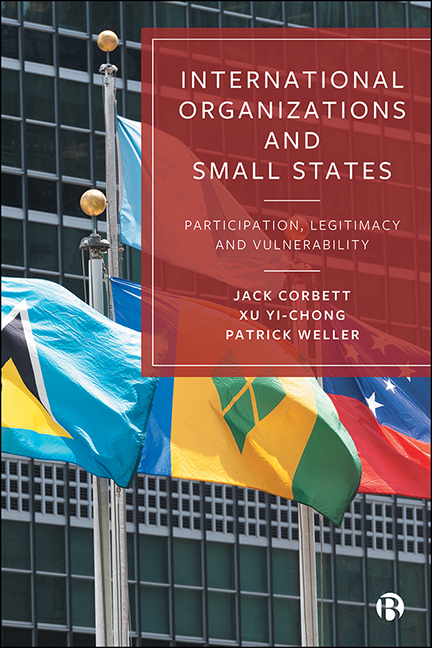7 - Conclusion
Published online by Cambridge University Press: 13 May 2022
Summary
This book has sought to explain the interaction between IOs and small states and how it has changed over the last three decades in particular. We used SIDS as a proxy for small states as they represent the smallest of the small; if these states want to be involved, however marginally, in the activities of IOs, then the findings on their strategies should be applicable to other slightly larger states too. Their experience reveals two perpetual dilemmas. SIDS argue they need to participate in IOs to safeguard their sovereignty, extract resources, and promote a permissive liberal order. The problem is that the costs of participation are disproportionately high for the smallest who face acute capacity constraints. The IOs’ dilemma is that while the norms of sovereign equality and the right to development impel them to be inclusive of those who have been approved as members, the active participation of an increased membership can increase ineffectiveness due to gridlock and delay. IOs thus attempt to balance inputs and outputs by way of throughputs in order to include states in such a way that it enhances, rather than constrains, their effectiveness.
By competently performing their vulnerability SIDS are able to both demonstrate that they are functioning states worthy of system membership and illustrating that they require S&DT to remain viable, especially in the face of climate change. For IOs, the establishment of groupings, and thereby collective participation, represented here by the SIDS category or analogous examples like the SVEs at the WTO, allows them to achieve a level of support from its member states by way of ‘throughputs’: that is, adopting processes and practices that both include small states, thereby honouring their commitment to sovereign equality, but also sharing responsibilities for outcomes with them. Labels such as SIDS that incorporate otherwise disparate member states are therefore useful to both small member states and IOs even though the constitutive norm they represent – in this case, differentiated development – remains contested by larger and more powerful countries.
The existence of the label SIDS also reveals a number of internal problems. The countries we now call SIDS had a vision for collective action, and have put out their ‘tentacles and planted SIDS issues’ across the multilateral system, but we find no evidence of a shared grand strategy
- Type
- Chapter
- Information
- International Organizations and Small StatesParticipation, Legitimacy and Vulnerability, pp. 166 - 175Publisher: Bristol University PressPrint publication year: 2021

